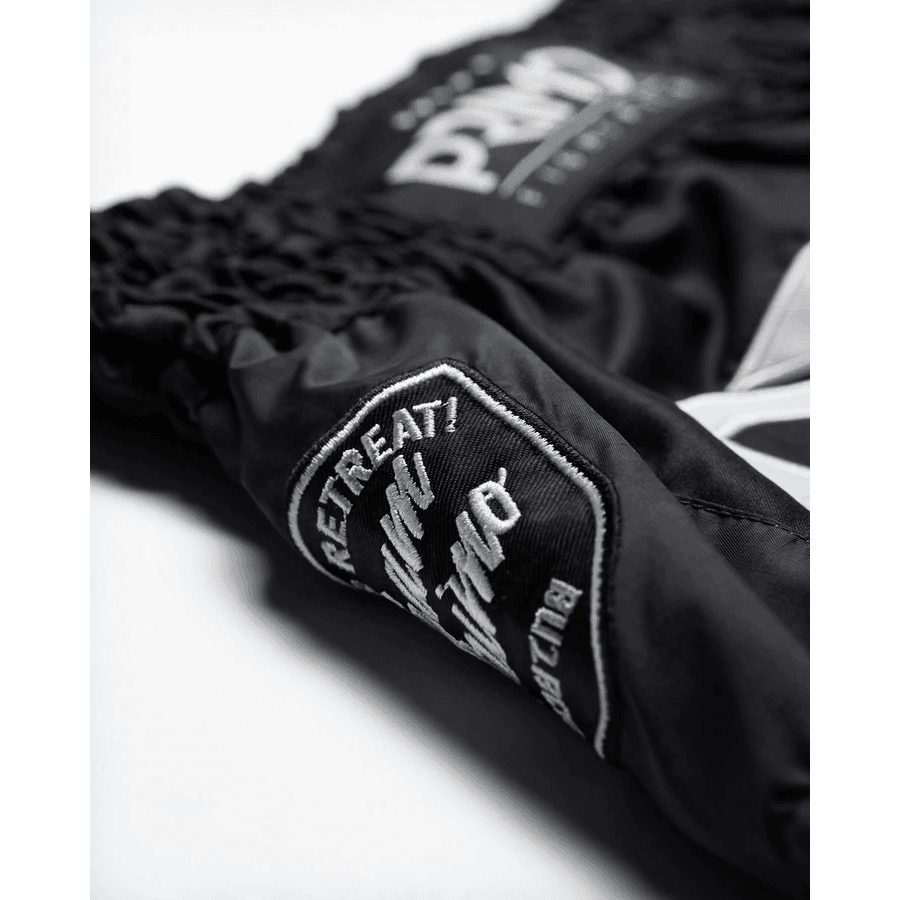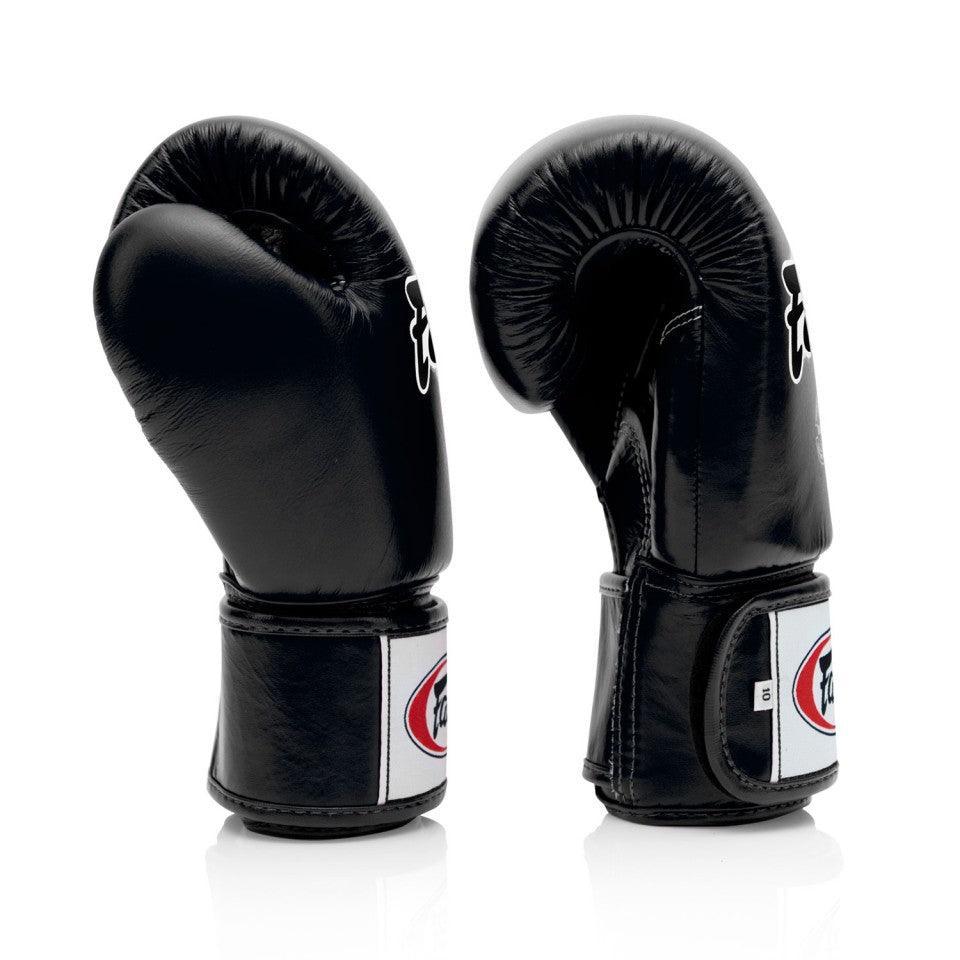What is Muay Thai sparring?
Sparring in Muay Thai is a crucial aspect of training where practitioners engage in simulated combat to practice techniques in a controlled environment. It allows fighters to test their skills, timing, and strategies against an opponent while refining their defensive and offensive capabilities.
It is a crucial component of training that allows fighters to elevate their abilities by engaging in dynamic exchanges with fellow practitioners. Through sparring sessions, fighters can hone their timing, footwork, defensive maneuvers, and offensive tactics while gaining practical experience that complements their technical knowledge.
The intricate dance of offense and defense in sparring sessions not only build you physically, but it also tests you mentality, makes you think creatively and helps you prepare for the unpredictable nature of a real fight.
How hard do you want to get hit?
Sparring can get heated quite easily, especially if someone is hitting unnecessarily hard. When someone spars without limiting their power, they can start “wars” and someone often ends up hurt. No-one wants this and no-one will want to spar with you if you're person who does this.
Therefore, mitigate the chances of a spar turning into a brawl with bad intentions by being mindful of your power and hitting your partner at an agreed power level – one which you both are comfortable getting hit at. While it's difficult to know exactly how hard you hit or how much your partner feels your strikes, try to keep it at the agreed power level and expect a harder strike in return if you throw a hard one. This is especially important during your first spar, as it can help establish a level of trust and respect between you and your opponent. However, it's important to remember that for beginners, staying at a lower power level is crucial for their safety and development. The only thing hard sparring can do for beginners is make them tough, but it's not going to give them any skills. It'll only make them better at getting beat up.
That said, if your partner hits hard consistently, you're well within your right to return the favour, although this isn't the only option. You could intentionally lower the power and await reciprocation or you can ask your partner to lower the power (there is no shame in this).
Don't take one hard strike as an invitation to elevate the power though, it could be an anomaly, so continue and see whether the power becomes consistent. If so, choose one of the options above.
Lose your ego
You shouldn't bring your ego into the gym and especially not into your sparring sessions. There will always be someone who can instil humility in a quick, forceful fashion which is likely to damage your body as much as your ego. So remove ego from the equation and replace it with an open-mind that's eager to learn.
After all, you will get hit and you will get caught from time to time. This is part of the practice, so acknowledge and embrace it. Only by striking and getting struck will you truly develop your guard, reactions and motor memory.
Don't be the egotistical doofus that no-one wants to spar with because everyone knows it's not about learning with you, it's about showing off or proving yourself. While this type of sparring can be funny amongst respectful partners who understand one another, it can easily go awry with someone who's egotistical and not willing to let go of their ego a little bit.

Go slow
While sparring is a great opportunity to put your skills and pace to the test, don't rush it. Rushing strikes and movement will result in sloppy motions which expose you to counters. You also expend far more energy when sparring due to the tension and stress, so keeping things slow and maintaining composure reduces the likelihood of you getting overwhelmed or out of breathe quickly.
Furthermore, going slow helps you learn as you take every slight movement in and evaluate appropriate reactions in your mind. It also helps you read your opponent and develop your understanding of their style, thereby broadening your own knowledge and arsenal.
That said, if your partner is very aggressive and refuses to go slow, try not to get too drawn in. You can work on your guard and ring movement without rushing strikes and exposing yourself to your partner's aggression and power.
Don't get emotional
No-one likes to get punched in the face or kicked in the ribs, however, in a full-contact sport like Muay Thai, pain is inevitable. You need to develop mental discipline which enables minimisation of the pain and clear-thinking, so you can react technically, rather than emotionally. That's not to say some anger isn't useful for empowering your strikes, but that shouldn't be needed in sparring. Emotionally charged decisions result in sloppy technique which expose you to counters.
This is especially relevant for when you get beaten down. Sometimes you'll get beaten from pillar to post and consistently put down. Don't let this demoralise or upset you, it's a natural part of the learning process.
Rotate sparring partners
Part of the beauty of sparring is you can pit yourself against different partners with different styles, different levels of experience, different ranges and weights. Do not avoid certain sparring partners because of their physical attributes, experience or styles, you should instead embrace them as it's this type of variety which accelerates your learning and broadens your skill set. More experienced partners can help you develop your weaknesses and teach you useful tips. Stronger sparring partners force you to keep range and move quickly. Faster sparring partners force you to react faster and counter frequently.
If you just work with the same sparring partner, you'll only learn at a slow pace and you'll likely stick with the techniques and combinations you know work on that partner. Instead, get out of your comfort zone and really test yourself. It's in that zone you learn the most.
Create a game plan: Think of a technique/style/movement and focus
Develop a game plan and goal prior to every sparring session which focuses on a specific technique, combination, style or movement which you want to improve. For example, you can focus on slipping jabs and immediately countering with a jab to the body or a body kick with your lead leg. Or, you can focus on engaging in the clinch by powering forward with knees. Whatever it is, make sure you execute against different partners so you can gauge reactions and further develop your game, including incorporating head movement to avoid getting hit.
By pre-planning and then executing your plan with focus, you'll make consistent, slight improvements which, over time, make up a significant gain. Furthermore, this type of focus enables you to identify the best timings for your moves and how different fighting styles react to what you're executing. This builds further understanding of how and when to use your skills most effectively.

Look for openings & adapt
Strike with a purpose, don't simply do so because you feel compelled to. With your strikes, you should seek to force a reaction, impose damage or force a movement or change of pace.
Therefore, it's important to observe, analyse and anticipate your partner's moves, then strike when you see openings. Using this analytical approach saves you wasting energy on useless strikes while improving your capability of identifying weaknesses, strengths and opportunities.
Ask for advice & learn
You can hit pads and bags for years but it's in sparring that your skills really get tested (and improve). However, due to the stress, tension and pace of sparring, it can be difficult to learn in real time, often you think over the sparring after the fact and learn retrospectively. This is a good approach but you can enhance your learning by asking advice from your sparring partner after the round. Furthermore, you can ask your coach to watch you spar and critique you both during the round and afterwards.
Ask questions, listen, learn and apply.
Use the right equipment
This may sound obvious, and it is, however, it's not uncommon to rotate partners in sparring and one (or more) doesn't have a gumshield, or shin guards or they only have 10oz gloves.
Not having the right equipment changes the dynamic in sparring and reduces your chances of learning something new. This is due to the fact your partner won't be able to use their full arsenal if you don't have the right protective equipment, or, if you have gloves that are too small, it's likely you'll frustrate your partner and they'll end up striking you harder as they can feel your knuckles more prominently. In fact, it's not uncommon for people to avoid others who don't have the right equipment.
Be prepared to spar in all training sessions and pack your bag accordingly. Have a spare pair of larger Muay Thai gloves (e.g. 16oz) just for sparring. Don't be the person who doesn't have the right equipment and misses out as a result.
Relax and breathe
This is a crucial tip for beginners and something practitioners of all experience levels need reminding of from time to time. You need to relax and breathe when sparring, irrespective of any pain, stress or anxiety. You should only be tense when throwing or defending against a strike. Tensing in-between drains energy and makes your own strikes sluggish, thereby reducing your chances of hitting your opponent and executing successful counters. Remember to take it easy and focus on learning and improving from the last time you sparred.
It's far easier said than done but it becomes natural with purposeful practice. After all, breathing is key to relaxation. Practice effective breathing both in and out of the gym so that when you do spar, you can catch your breathe efficiently. Proper and timely breathing increases your endurance and enables you to get more out of your sparring sessions, making it an important aspect of conditioning in Muay Thai.
Take deep breathes when there's a break in exchanges. Blow out hard when struck. Exhale and make a sound when striking.
FAQS
How many times a week should you spar Muay Thai?
The frequency of sparring in Muay Thai can vary depending on your experience level, fitness level, and training goals. As a general guideline, beginners may start with sparring once or twice a week to gradually build up their skills and confidence. More experienced practitioners or fighters preparing for competitions may spar more frequently, sometimes up to 3-4 times a week.
It's important to listen to your body, communicate with your coach, and adjust the frequency of sparring based on how you are feeling physically and mentally. Remember that quality of sparring is more important than quantity, so focus on learning and improving during each session rather than just getting in as many rounds as possible.
When should a beginner start sparring in Muay Thai?
A beginner should start sparring in Muay Thai once they have developed a good understanding of the basic techniques, footwork, and defensive skills. It is important for beginners to have a solid foundation in Muay Thai before engaging in sparring to ensure their safety and to get the most out of the sparring sessions.
Beginners should also be under the supervision of a qualified instructor who can provide guidance and feedback during sparring sessions. Remember, safety always comes first in martial arts, so take your time to learn the fundamentals before jumping into sparring.
What equipment is essential for Muay Thai sparring?
When you know you're going to spar, make sure to bring along all your protective equipment, including:
1. Sparring gloves: We recommend 16oz gloves as this helps reduce the risk of injury to yourself and your partners.
2. Shin guards: Essential for protecting your shins from kicks and strikes.
3. Mouthguard: To protect your teeth and jaw during drill-work and sparring.
4. Groin guard: Essential for protecting sensitive areas during training.
5. Hand wraps: Helps support your wrists and adds an extra layer of protection to your hands while wearing gloves.
Having the right equipment is crucial to ensure a safe and productive Muay Thai sparring session while minimizing the risk of injury.













